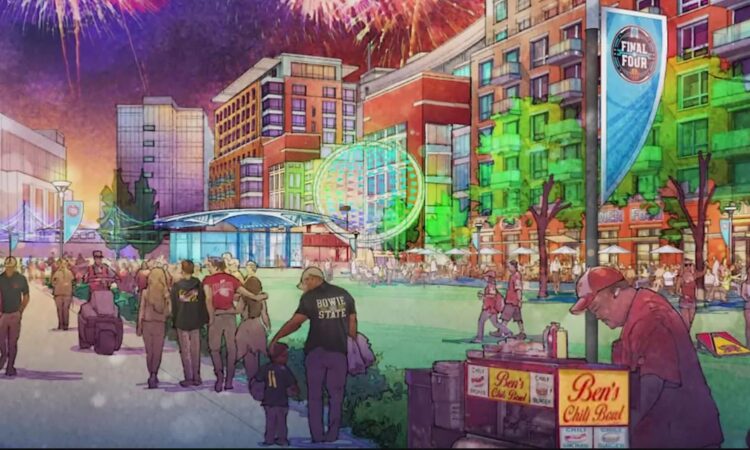
Maryland approves $400M in Maryland Stadium Authority bonds to finance Blue Line Corridor. Now some residents need convincing.
CAPITOL HEIGHTS, Md. — A day after Maryland’s Stadium Authority was given the green light to move ahead with $400 million in financing for Prince George’s County to execute a once in a generation master plan to transform a four-mile long corridor along Central Avenue into a glittering new urban center, residents raised questions.
“I’m shocked,” said resident Preston Proctor after hearing the news about the project known as the Blue Line Corridor.
His wife Linda immediately questioned whether gentrification would push people out.
“Most of the people in this area, they can’t afford high priced housing,” she said.
James Arthur, who lives with a disability, had a similar reaction.
“They got to make it affordable for us so people can live out there,” Arthur said. “This rent is already high.”
The Blue Line Corridor master plan calls for the potential redevelopment of the area around FedEx Field, whether the Commanders decide to stay in Prince George’s County or not.
But the expansive plan goes much further, calling for development of sparkling residential and retail urban centers focused around Metro Stations on the Blue Line from Capitol Heights to Largo.
The plans include an amphitheater complex, sports facilities, parks, a civic plaza and a library along with the complete reconstruction of a 4-mile section of Central Ave.
On Wednesday, Maryland’s new Gov. Wes Moore and the state’s board of public works gave the final approval for the Maryland Stadium Authority to issue as much as $400 million in bonds to finance it all.
State and County leaders say questions about affordability are already being addressed.
One key goal is to: “Preserve and diversify housing affordability; build 26,000 housing units (75% affordable) by 2030,” according to plan documents.
In addition, the county has already begun exercising its power under a “First Right of Refusal” law to take control of aging apartment complexes that come on the market, to keep rents affordable.






